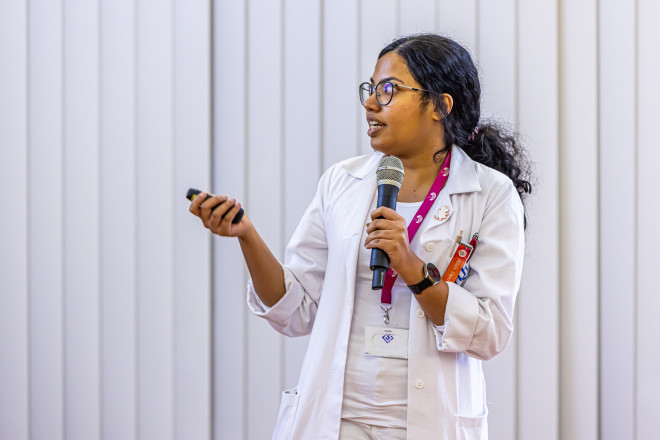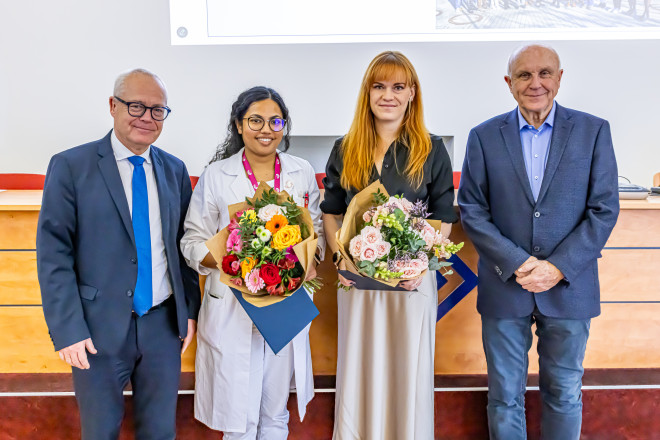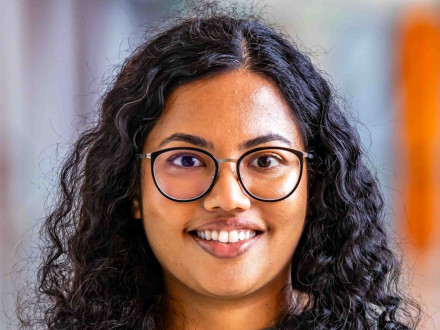What did you get the award for?
Our study investigated 754 children with diabetes aged up to 16 years from a unique region with a high rate of consanguinity (high rate of marriages among related individuals). This study was possible due to an invaluable collaboration with a pediatric endocrinologist from Kurdistan, Iraq (Dr. Tara Tayeb) who actually worked in Motol for a few months 6 years ago and returned to Iraq, but the collaboration continues until today. Their center for diabetes is the only one in the area, and despite offering the best possible care, they have difficulties with options available through in the health care system, and financial constraints of patients (as many things are self paid), especially in those from rural areas.

Consanguinity increases the rate of genetic conditions including rare endocrine conditions such as monogenic diabetes so we aimed to do the first-ever study mapping pediatric diabetes subtypes in a consanguineous region. We found that the most common subtype of diabetes in this population is Diabetes Type 1 with over 90% of children having Type 1 diabetes, smaller proportions of patients had Type 2 diabetes, MODY diabetes and other monogenic types of diabetes such as neonatal and syndromic. In addition, we did genetic testing in all children with neonatal (diabetes diagnosed until 6 months of age) and syndromic diabetes (diabetes with other accompanying non-autoimmune conditions) and found a positive genetic result (monogenic cause) in over 80% of patients.

What is the clinical application of this research?
It is relevant information for diabetologists worldwide, specially for doctors from consanguineous region as it showcases the importance of selecting high risk patients and providing genetic testing. Thanks to the genetic testing carried out during our study, we were able to directly influence treatment methods, further follow-up and genetic consulting of these patients.
What are your plans now?
I have just finished my PhD in February this year and in terms of research, I have some other projects in the works focused on genetic causes of short stature, partially with dr. Tayeb as well, but mostly focused on Czech patients. In addition, in terms of clinical medicine, I hope to finish my subspecialisation in paediatric endocrinology and diabetology during the year 2025.
Recommended
I Always Wanted to Do Paediatrics, Work with Children
Interview with Dr Shenali Amaratunga, PhD., who came to the Czech republic from Sri Lanka almost 12 years ago.
When I Moved Here, I Was Barely 19. I Had Never Been to Europe.
A Czech-Sri Lankan Special with Dr Shenali Amaratunga, PhD, who came to the Czech Republic from Sri Lanka almost 12 years ago.


